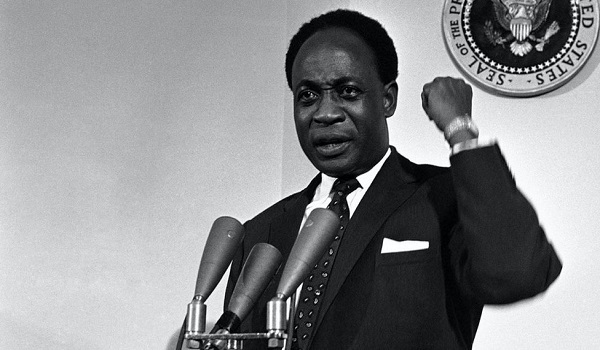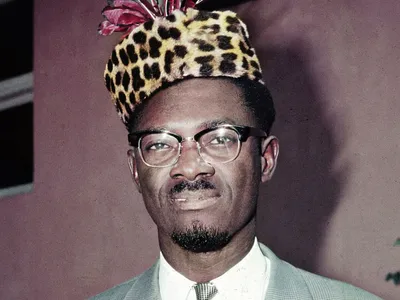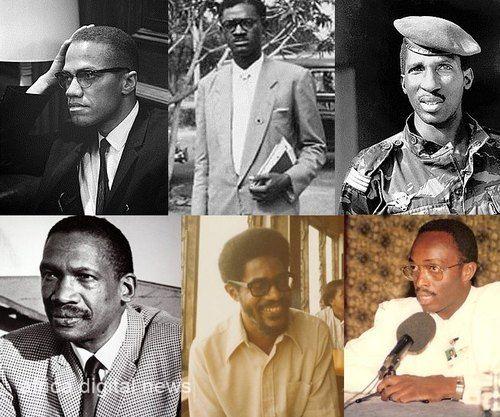The African continent has had many admirable and remarkable leaders in times past who fought with their lives, blood, and sweat for the independence and growth of the continent. This reality makes it sad to see that Leaders of today seem to be of a different breed and have completely deviated from the path of visionary leaders of the past such as Thomas Sankara, Patrice Lumumba, and Kwame Nkrumah, to name a few.
These leaders were fierce in their advocacy for the freedom of Africa from the clutches of colonial masters. They saw the need for self-determination and fought without end until their countries were free from the choking hold of foreign powers and on the path to charting their destiny. However, many years later, it has become imperative to remind present-day African leaders of what should matter to them and what lessons they must learn from the likes of Sankara, Lumumba, and Nkrumah if they hope to elevate the African continent from where it currently lies.
Thomas Isidore Sankara

Burkina Faso’s former president, Sankara, was an iconic pragmatic and revolutionary leader, and until his brutal assassination on October 15, 1987, Sankara lived a life that became an enduring legacy for African leaders seeking freedom from ideological slavery and economic dominance.
At the young age of 33, Sankara came into power in August 1983 through a military revolution that took Burkina Faso on a new course. His government focused on food security, African self-reliance, gender equality, and the pulling down of the neo-colonial structure that continually makes Africa dependent on its foreign masters for survival.
Sankara was nicknamed Africa’s ‘Che Gueverra’ due to his interest in carrying other African countries along.
One of the first things Sankara did when he took power was to change the country’s name from the identity-less Upper Volta to Burkina Faso, meaning the land of honest men. He cared a lot for the Burkinabe culture and pride, just as much as he did for African pride, which led him to make a bold and powerful address during an OAU assembly calling for African self-reliance.
Sankara believes that until one acknowledges their roots, they cannot understand who they are, and this is the reality of many African countries. If African leaders don’t take a deep look into their past, they will continue to accept any identity Western leaders apportion to them.
Sankara also worked to correct the consumer culture fueled by greed that constantly promotes a sense of lack and unchecked consumption and importation of everything foreign. He supported local production of food items and frugality in all its forms.
Sankara’ can be best described as a servant leader. Sankara’s salary was estimated at $450 a month. Apart from four bikes and a car, he had nothing much in his name. Burkina Faso was one of Africa’s poorest nations at the time, and as a result, Sankara got rid of the presidential fleet, turned down an air-conditioned office, and all other benefits, not being able to live in affluence while the masses suffered. Sankara was what you would term broke at the end of his life, but he left behind an enriched nation. How many African leaders of today can boast of anything close?
Kwame Francis Nkrumah

Following Ghana’s independence, Kwame Nkrumah dedicated himself to two areas: firstly, the Pan-Africanism project of economic and political freedom, as well as Africa’s position on the global stage. And secondly, on a domestic level, ensuring that Ghana moved away from the colonial economy it inherited from the British into a balanced economy that ensured the livelihoods of all Ghanaians.
As Ghana’s leader, Nkrumah didn’t mind incurring the wrath of the imperialists, provided he stood for the interests of the African people and nations. Nkrumah played a rallying role in African issues, including support for national liberation movements and a commitment to anti-colonial independence.
When France turned a new leaf in its attempted colonial control by inviting its African colonies to become members of a French community, Guinea refused the offer, and the result was that the French stripped the nation bare in revenge. It was Nkrumah who played a major role in preventing the country from collapsing by offering the country a £10 million loan, which was a major weight on Ghana’s economy at the time.
In September 1960, Nkrumah made a bold case for the unity of Congo and the leadership of Lumumba during the UN General Assembly, as well as an African solution to the crisis in the Congo, although the appeal failed due to the selfish interests of the United States and its NATO allies.
On the national scene, Nkrumah made so much effort to transform the economy for the benefit of ordinary people. He sought to build democratic organisations that would become vehicles of mass participation, movement, and support.
Nkrumah invested in health, education, and infrastructure—three areas that suffer in many African countries, even though they are directly connected to the growth and development of every country.
Read Also: African Leaders Must Stop Accepting Handouts From The West
Nkrumah devoted his life to the pursuit of Africa’s national liberation, and his strategies should be studied by present-day African leaders, including the blueprint of projects he couldn’t completely implement before he was overthrown.
Patrice Émery Lumumba

Since his impromptu independence speech as the first Prime Minister of the Democratic Republic of Congo on June 30, 1960, Patrice Lumumba had already gained enemies within Belgium, with the foreign press, and with other international powers who didn’t like the way he spoke of national identity as a replacement for colonial victimisation and the loss of African dignity. It is no surprise that Belgian scholars and foreign media didn’t spare any time before declaring Lumumba undiplomatic, incompetent, aggressive, and demagogic during the Congo crisis. However, an objective assessment of the situation shows you that Lumumba had a vision that was bigger than him, bigger than Congo, and directed at the African continent as a whole.
Lumumba was an advocate of African humanism hinged on the values of liberty, egalitarianism, brotherhood, social justice, and respect for fundamental rights.
Although Lumumba’s exploits are often celebrated as the achievement of a single man, despite his short career in government and controversial death, his political legacy remains something that should be studied by African leaders today.
As expected, Lumumba’s political ideology offended both Congo’s ex-colonial masters and the Western powers, which had hoped to succeed in their neocolonial projects in Africa.
Being both a Pan-Africanist and a Nationalist, he took upon the project of unifying all the ethnic groups in Congo, thereby promoting peace and unity and leaving no room for division, which was the breeding ground for neocolonial projects and ideologies.
At this point, it became obvious that none of the foreign powers wanted a unified African nation-state because African unity threatened the neocolonial agenda. The neocolonial agenda supports that African states continue to live in intra-ethnic tensions and disunity, thereby favouring their ‘divide-and-rule’ practice in Africa so that they can continue raping the continent of its God-given resources and upward mobility.
Lumumba’s desire to achieve unity throughout Congo is connected to his assassination while he was on a peace mission in the Katanga region, in the North East region of Congo. Katanga region was rich in mineral and natural resources, hence the external interest. While Lumumba was suing for peace amongst the warring soldiers, he met his demise. Many years later, it is alleged that the Belgium authorities’ who were threatened by Lumumba’s pro-African agenda, as well as his desire to localise the mining and rubber industries in Congo, plotted his demise.
The stories of these revolutionary leaders who lived and died in the interest of their countries and the African continent should be both a motivation and a blueprint for African leaders who seem to be struggling to pilot the affairs of their countries and the continent at large.
African leaders must realise that African states were designed to be death traps that would continue serving the interests of their ex-colonial masters and greed-driven world powers.
African leaders must see that wars and disunity continue to frustrate the plans and goals of nationhood and unity amongst African states, and that is why wars, violence, and terrorism are still ongoing to date.
African leaders must embrace economic empowerment and self-reliance, as they are the ingredients for a truly independent African state. Social equality and Justice are also compulsory ingredients for a truly great African state. The importance of Pan-Africanism and African unity cannot be emphasized, likewise, the unwavering determination even in the face of adversity has been seen in the lives of these leaders we have discussed.
The legacies of Thomas Sankara, Patrice Lumumba, Kwame Nkrumah, and other African leaders who lived and died for the independence, unity, and progress of the African continent should be forever upheld. African leaders must study their lives and get inspiration from their vision and commitment to improving their nations and the African continent as a whole.










